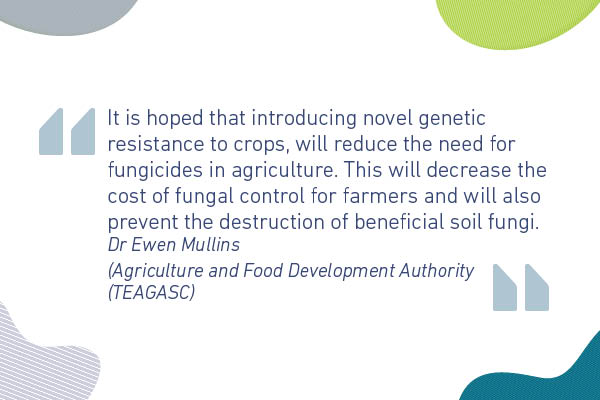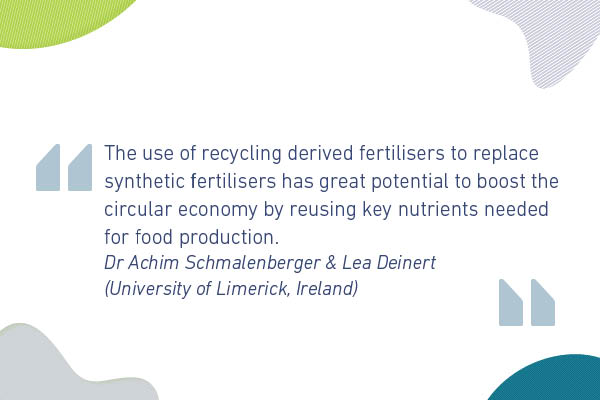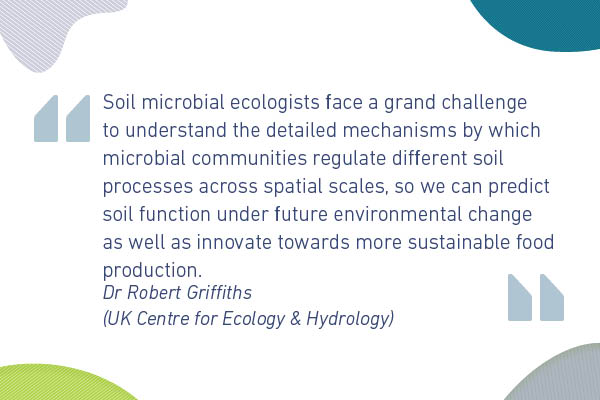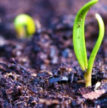Soil Health
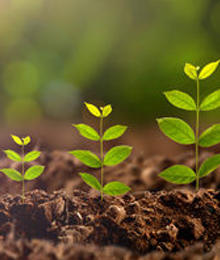
The importance of maintaining the health of our soils has gained increasing prominence in recent years. Soils are essential for the global food system and regulate water, carbon and nitrogen cycles but are put under pressure from population growth and climate change.
The UK is estimated to be 30 to 40 years away from “fundamental eradication of soil fertility”, and the UN have warned that if current degradation rates are not reversed there may be less than 60 harvests left in the world’s soil.
Securing soil health is important for achieving all the SDGs as it is vital for life on earth, the SDGs most closely linked are zero hunger (SDG 2), responsible consumption and production (SDG 12), climate action (SDG 13) and life on land (SDG 15).
What is the role of micro-organisms?
Soils are one of the most biodiverse habitats on Earth, with an estimated 40,000 to 50,000 species of micro-organism per gram of soil. Soils are home to a quarter of the world’s biodiversity and micro-organisms play an essential role for maintaining soil health and sustaining many functions vital for life of earth. This includes decontamination of soil through bioremediation, decomposing organic waste and storing carbon, regulating greenhouse gases and important nutrients such as nitrogen and phosphorus.
Potential methods for improving soil health through microbiology?
In England and Wales soil degradation costs around £1 billion per year as conventional farming practices and climate change are having detrimental impacts on soil microbiomes. The importance of sustainable land management is growing as we are becoming more aware of methods for supporting soil health. These include methods to increase soil organic matter, reduce chemical inputs, increase the diversity of crops and reduce disturbance.
-
A Sustainable Future: Soil Health Policy Report
Access our report, which explores new possibilities for the restoration and promotion of healthy soil microbial populations to achieve soil health.
-
Soil Health explainer
The quality of soil and its suitability for growing crops has been important since humans developed agriculture. Learn more about soil health and why it is vital for maintaining food security, preserving biodiversity and combatting climate change.
-
Soil Health Case studies
Explore a range of case studies that focus on soil health, including enhancing crop performance using soil microbes, how microbiologists are hoping to help fix the problem of nitrogen limitation in agriculture, and the use of indigenous micro-organisms in the sustainable farming of Amaranthus hybridus.
-
Microbe Talk: a sustainable future in soil health
Dr Ellie Harrison, Research Fellow at the University of Sheffield and Luke Hillary, PhD student at Bangor University tell us about how their research into soil health is contributing to achieving the United Nations Sustainable Development Goals (UN SDGs).
Image credits:
Sofiaworld/iStockKrungchingpixs/iStock
AndreusK/iStock
Digicomphoto/iStock
Chinnapong/iStock


